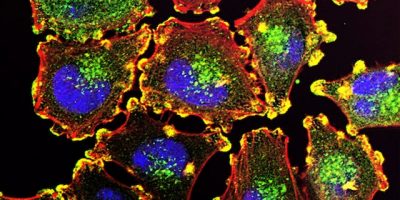Common, noncancerous growths in the uterus that can afflict women who are or are not reproductive age are known as uterine fibroids. For quick action to be taken, early symptom recognition is crucial.
This guide outlines five key signs that may indicate the presence of uterine fibroids and explores potential treatment options.
Sign 1: Menstrual Irregularities
Significant changes in menstrual patterns, such as heavy or prolonged bleeding, irregular periods, and increased pelvic pain during menstruation, often serve as crucial indicators of potential uterine fibroids.
These signs can impact a woman’s overall well-being and quality of life. Heavy menstrual bleeding may lead to anemia over time, contributing to fatigue and weakness. Period irregularities can throw off daily schedules and may indicate a hormonal imbalance.
Increased pelvic pain during menstruation can significantly impact comfort and may be indicative of fibroids affecting the uterine lining. It is crucial that you consult a healthcare provider if you notice any of these menstrual abnormalities.
Consulting with a medical expert allows for a comprehensive evaluation of symptoms, accurate diagnosis, and the development of an appropriate treatment plan tailored to individual health needs.
Early detection and intervention enhance the effectiveness of managing uterine fibroids and addressing associated symptoms.
Sign 2: Pelvic Pain and Pressure
Persistent pelvic pain or a sensation of fullness in the pelvic area, particularly when coupled with lower back pain, can be indicative of uterine fibroids.
Fibroids, as noncancerous growths in or around the uterus, may exert pressure on surrounding organs, leading to discomfort and pain. This pelvic pain can range from mild to severe and may be accompanied by a feeling of fullness or heaviness.
It’s critical to identify these symptoms as possible indicators of uterine fibroids and to get medical help as soon as possible. Consulting with a healthcare professional allows for a thorough evaluation of the symptoms, including consideration of the size, number, and location of the fibroids.
Addressing pelvic pain and pressure promptly ensures appropriate diagnosis and the development of a tailored treatment plan to alleviate discomfort and enhance overall well-being.
Sign 3: Frequent Urination
Enlarged fibroids pushing against the bladder may be the cause of changes in urine patterns, such as more frequent urination or trouble emptying the bladder. This pressure on the bladder can result in a range of urinary symptoms that affect daily life.
If you observe alterations in your urinary patterns, it is crucial to discuss these symptoms with your healthcare provider for a comprehensive evaluation. Residents seeking guidance on uterine fibroid treatment in Memphis, TN, can consult with healthcare professionals who specialize in women’s health.
Addressing urinary symptoms allows for a thorough assessment of the impact of fibroids on bladder function. It facilitates the development of an individualized treatment plan tailored to alleviate these concerns and improve overall urinary health.
Early intervention ensures that potential complications related to fibroids are addressed effectively, contributing to enhanced well-being.
Sign 4: Reproductive Issues
Uterine fibroids can impact reproductive health and pose challenges for women trying to conceive or navigate pregnancy. If you encounter difficulties in conceiving, experience recurrent miscarriages, or face challenges during pregnancy, it’s advisable to explore potential links to uterine fibroids.
Fibroids may interfere with the implantation of a fertilized egg, disrupt the blood supply to the uterus, or cause complications such as breech birth or the need for a cesarean section.
Seeking timely medical attention and discussing these reproductive issues with healthcare providers is crucial for a comprehensive evaluation. For those inquiring about uterine fibroid treatment, healthcare professionals specializing in women’s reproductive health can offer guidance.
Addressing reproductive issues associated with fibroids early on enables healthcare providers to develop appropriate management plans, enhancing the likelihood of successful conception and a healthy pregnancy.
Sign 5: Abdominal Enlargement
Unexplained changes in the size or shape of the abdomen, particularly if accompanied by an increase in abdominal size, can be a noticeable sign of uterine fibroids. Abdominal distension may occur in certain instances due to uterine enlargement brought on by fibroids.
This change may be more apparent in women with larger or multiple fibroids. Should you notice such changes in the look of your abdomen, it’s imperative that you see a medical specialist for a comprehensive assessment.
Healthcare providers, especially those specializing in women’s health or uterine fibroid treatment, can assess the potential impact of fibroids on the size of the uterus and overall abdominal contour.
Timely intervention ensures a comprehensive understanding of the underlying causes and allows for the development of an appropriate management plan to address abdominal enlargement and associated symptoms effectively.
Conclusion:
Effective therapy of uterine fibroids begins with recognizing their symptoms. If you experience any of these signs, consult with a healthcare professional to determine an accurate diagnosis and discuss appropriate treatment options tailored to your individual needs.














Comments